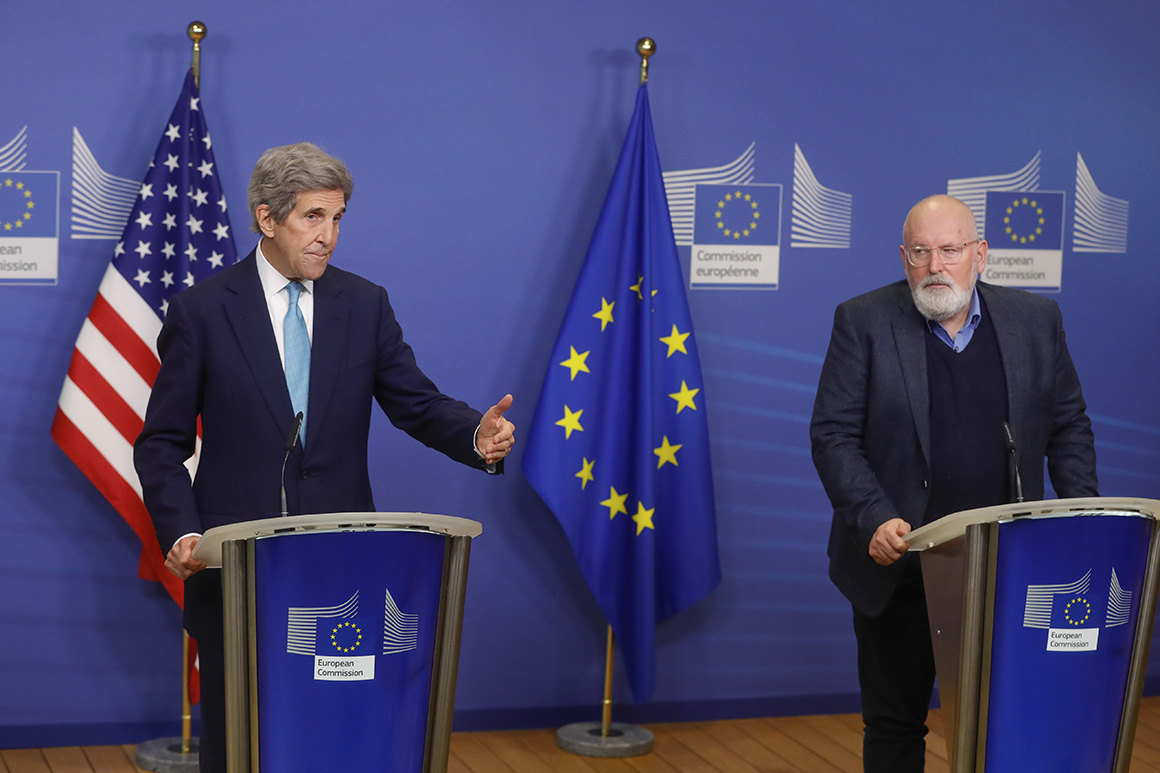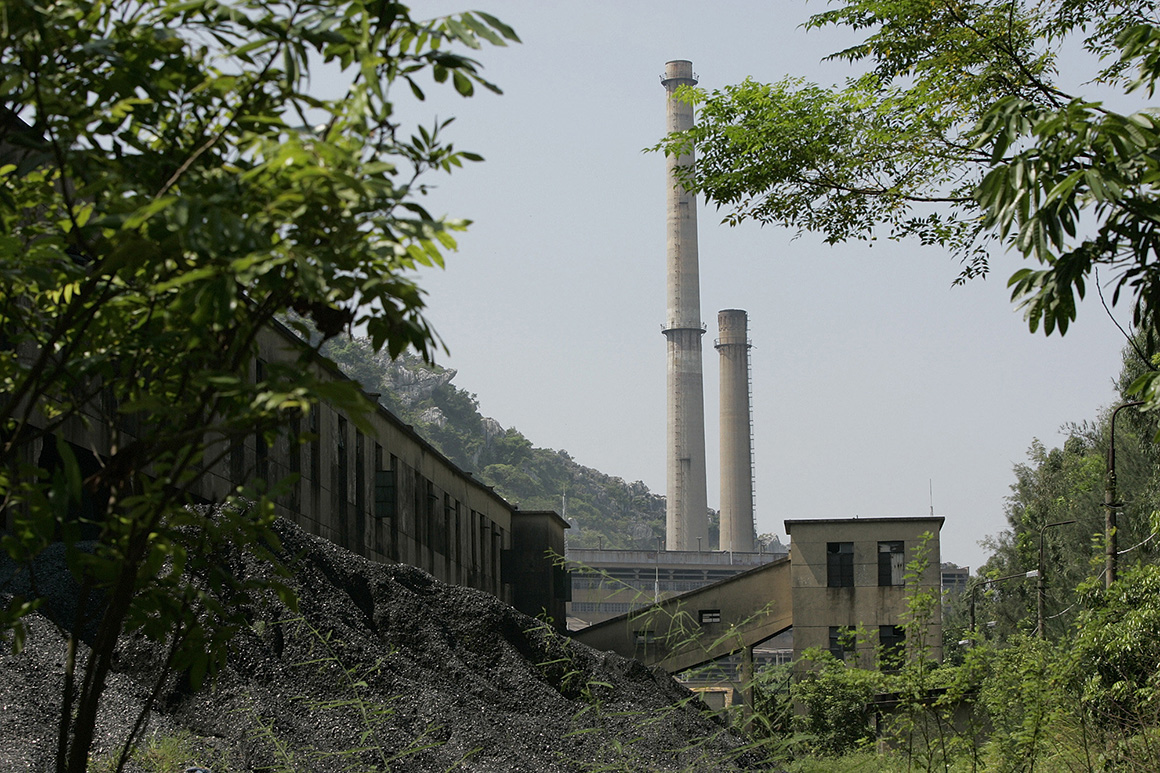
Vietnam’s decision to sentence a prominent environmental activist to two years in prison has put U.S. and EU climate negotiators in a tough spot as they try to persuade the country to ditch its coal dependence.
U.S. Special Climate Envoy John Kerry and his EU counterpart Frans Timmermans joining a growing chorus demanding the release of Ngụy Thị Khanh and other climate activists imprisoned in Vietnam risks derailing a deal aimed at shifting the ninth largest coal consuming country off the dirtiest fossil fuel. But if they don’t require their release as part of the deal, they face the wrath of civil society organizations who do not want public money for climate action flowing to countries that jail activists.
The situation in Vietnam highlights a broader challenge that climate negotiators face as they must convince nations such as China and Saudi Arabia, which have poor human rights records, to take action to mitigate the climate threat.
The June 17 sentencing of Ngụy on tax evasion charges came as the western powers were negotiating with Vietnam on a plan to spend billions to further its transition to cleaner energy sources. But ahead of the start of the G-7 meeting Sunday, civil society organizations are pressuring U.S. and EU government officials to require climate activists jailed in Vietnam to be released in exchange for helping to finance that transition. That move could be on the table, but would be a difficult step to take given fragile diplomatic relationships.
U.S. and EU officials “were under the impression that she was going to be released, and it took them by surprise that she was sentenced to two years in prison. That's an unprecedented sentence,” said Michael Sutton, executive director of the Goldman Environmental Foundation, which awarded Ngụy with a prestigious prize in 2018 for her work to help Vietnam reduce its coal dependence.
“It’s really time for the U.S. to take the gloves off and make it very clear to Vietnam that this won't be tolerated,” Sutton added.
The dialogue with Vietnam is part of a multicountry approach the U.S., U.K. and European governments have embraced to convince emerging economies to abandon coal and build more renewable power. Conversations are farthest along with South Africa after an $8.5 billion plan to shift the country off coal was announced at last year's international climate talks.
Vietnam pledged at the United Nations talks in Glasgow last year that it would stop building new coal-fired power plants and aimed to hit net-zero emissions by 2050. That would represent a drastic shift for a nation with nearly 21 gigawatts of installed coal-fired electricity capacity, the largest in the greater Mekong region, according to Global Energy Monitor. It also has the third-most coal capacity in the preconstruction pipeline in the world, according to think tank E3G.

Now, civil society groups are pressuring the U.S., EU and U.K. governments to condition any public financing for clean energy on the release of Ngụy and three other jailed climate activists, according to a draft copy of a letter obtained by POLITICO that 58 groups will send to governments at the G-7 meeting in Bavaria, Germany, starting Sunday.
Saskia Bricmont, a Belgian member of the European Parliament who has taken an interest in the case, said the charges of tax evasion, now leveled against several campaigners, were “just not credible. I mean, it can happen in one case, but this is obviously a lie.”
Both the EU and U.S. this week publicly called for Ngụy to be released. In a statement to POLITICO, a U.K. government spokesperson “expressed serious concern” about the sentence.
An EU official said things would now go even further, indicating that diplomats from the 27-country bloc would raise Ngụy’s case as part of discussions about the energy deal, known as a Just Energy Transition Partnership.
“In relation to the JETP, the J of Just does not only refer to a transition that is socially fair, like avoiding energy poverty, but also a clean energy transition process that is inclusive, where all voices can express themselves freely, also those of NGOs,” said the EU official, who confirmed that the harshness of the sentence had caught their delegation in Hanoi by surprise.
The EU delegation to Vietnam hinted pulling public finance is on the table in a Tuesday communique to Hanoi obtained by POLITICO: “In the current context, when the EU is considering potential further assistance to Viet Nam on the green transition, it is important to recall that the involvement of all stakeholders, including NGOs, remains an essential and unavoidable part of the strategy.”
The case highlights a moral quandary that divides Western officials as they pivot toward trying to broker climate deals with polluting countries around the world.
“People are frankly torn,” said Jake Schmidt, senior strategic director for international climate with the Natural Resources Defense Council. “Clearly solving climate change involves working in countries that don’t always share human rights principles and democracy principles and share the opinion the United States does, and they’re trying to navigate that.”
There are also geopolitical concerns at play. Pulling back the billions in funding risks Vietnam doubling down and potentially running toward rivals like China to bankroll its energy transition, which could keep Vietnam reliant on fossil fuels for an extended period of time.
“There’s always a risk, especially if countries are at the table negotiating these transitions, that they’ll end up pursuing a different path,” said John Coequyt, government affairs director with think tank RMI, which has worked on clean energy in Vietnam. “Countries gain influence by working with other countries.”
Ngụy’s arrest was confirmed by authorities in early February. Initially, the diplomatic response was muted but behind the scenes the talks were high stakes. Ngụy’s family and lawyers had asked governments and civil society groups to limit publicity out of fear Vietnam would impose harsher sentences on the activists.
In recent interviews, officials from the U.S. Treasury and State departments, the U.K. and EU said they were aware of the sensitivities even as they spoke with Vietnam about the clean energy investment package. It was only after the Ngụy received the hefty prison term on Friday that her team indicated they would be glad to see Western diplomacy escalate.
Kerry, whose political origin story is as a military veteran who spoke out against the Vietnam War, raised the issue with Vietnam’s government during a February visit shortly after her arrest, Sutton said, referencing conversations with the State Department.
Justin Guay, director of global climate strategy with environmental group the Sunrise Project, said Kerry's voice is “just so uniquely powerful in this moment, in this case, given his special relationship with Vietnam and his special relationship with coal and coal activists. I think the climate movement needs his voice right now. You clearly cannot be giving money for the climate transition to a government that is cracking down on climate activists.”
In a statement, a State Department spokesperson said Kerry “is in complete agreement” with Secretary of State Tony Blinken that Ngụy’s imprisonment is “deeply concerning,” noting it already called for the release of her and three other detained environmental activists.
“Ms. Khanh has a long history of working on critical environmental issues such as climate change and sustainable energy,” the spokesperson said. “Her conviction is an illustration of a troubling series of legal actions that appear aimed at curbing civil society activities in Vietnam.”
A spokesperson for the Vietnam embassy in Washington, D.C., could not be immediately reached for comment.
Timmermans and Alok Sharma, the U.K.’s top climate envoy and President of the COP26 U.N. climate talks, visited Vietnam in February in pursuit of a deal to wean it off coal. Heeding the wishes of Ngụy’s family, neither man raised the case directly with the Vietnamese government, according to officials.
Timmermans left Hanoi publicly upbeat, telling his counterparts there that, just as in the deal struck with South Africa last year, European public money was available for the right energy transition plan. He left Vietnam praising its “resolve to be part of the international community that takes the climate crisis seriously.”
But Bricmont said Timmermans meeting with Vietnamese officials about ending coal production while Hanoi was jailing those critical of the industry was “a form of greenwashing.”
In private meetings with Vietnamese officials, including Prime Minister Pham Minh Chinh, Timmermans pointedly noted the need for a free civil society, according to an answer to a parliamentary question given by the EU’s top diplomat Josep Borrell. At the same time, EU diplomats in Hanoi were pressing the Vietnamese for more information about Ngụy’s case — and those of Mai Phan Lợi and Đặng Đình Bách, members of an EU sponsored NGO, the Centre for Sustainable Rural Development, who were jailed on similar charges to Ngụy in January. Bach Hung Duong, of Media in Educating Community, was also jailed in the country.
On Monday, the EU’s foreign affairs spokesperson Nabila Massrali shifted Brussels’ position and echoed the U.S. State Department by linking civil society and progress on climate change.
Ngụy “is a valuable partner for the EU,” said Massrali. “Her recent sentencing to two years in prison goes against our common goal. We call for her immediate release.”
----------------------------------------
By: Zack Colman and Karl Mathiesen
Title: ‘Surprise’ jailing in Vietnam tests U.S., EU climate strategy
Sourced From: www.politico.com/news/2022/06/26/vietnam-us-eu-climate-talks-00041656
Published Date: Sun, 26 Jun 2022 06:00:00 EST






